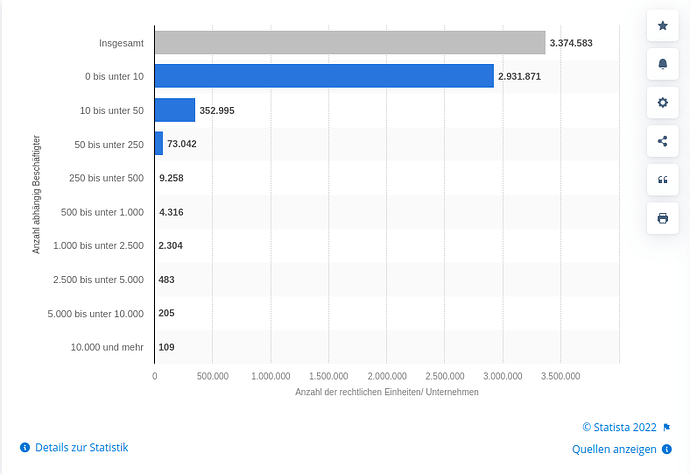In discussion with Tryton leaders, we all notice that those take good care for the situation in big companies. Certainly, there is nothing wrong with that. But when we check statistics, we clearly see that (eg in Germany), 85% of all enterprises have less than 10 employees, other countries may even have more small businesses. Among them, I’m quite sure that there is a larger fraction with 1-5 that with 6-9.
In a big company, employees tend to “play safe”, and it’s a wide spread (IMHO wrong) assumption that it’s safer to buy software from another big company, than to use FOSS.
All that boils down to the trivial insight that the big market for Tryton is smallest and small businesses. Revenues are likely to be small as well - but they multiply with really big numbers. I’m really happy that Tryton has this trust focus and does a good job in modelling clear processes for that. Nevertheless, there is the rest of us, the many smallest and small businesses. I do not have a panacea for this dilemma, but a good first step certainly is to be aware of where the really big market for Tryton is.
And we may think of some other options:
- advice how to simplify processes (eg I was taught how to abandon delivery zones in my warehouse)
- options for simplified processes in some modules (checkboxes to mask certain steps or options which are not required in a small business)
- and as ultima ratio: in rare cases, it may be easier to have specialized modules for small and big companies on the same topic
Cheers,
Wolf
